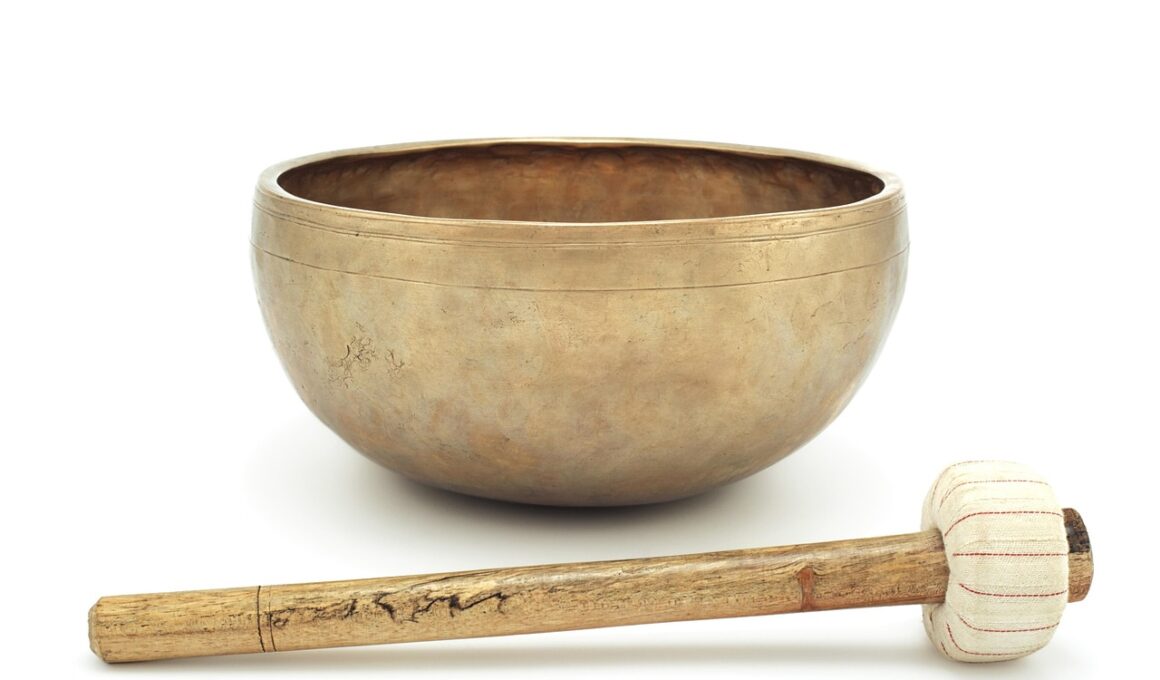Healing through Sound: Music Therapy’s Impact on Sports Injuries Recovery
The mind-body connection plays a crucial role in overall health and well-being, especially in sports injury recovery. Music therapy has emerged as a valuable tool in this context, harnessing the power of sound to facilitate healing. This therapeutic approach utilizes music’s emotional and physical components to help athletes cope with pain, reduce anxiety, and foster resilience during recovery. Research has demonstrated that engaging with music can stimulate brain activity associated with healing, leading to faster and more effective recovery outcomes. Athletes often experience a range of emotions following an injury, such as frustration or sorrow, which can hinder their rehabilitation process. Music therapy addresses these emotions by providing an outlet for expression and a means of relaxation, promoting mental well-being. Furthermore, music’s rhythm can also enhance physical rehabilitation exercises, making them more enjoyable and sustainable. As athletes immerse themselves in music, they often experience a notable shift in their mood, encouraging a positive mindset essential for effective recovery. Incorporating music therapy into rehabilitation programs can profoundly impact athlete recovery timelines and outcomes, enriching both physical and emotional healing.
Music therapy is not just about listening to music; it encompasses active participation in musical activities. Therapists often encourage athletes to engage in expressive sessions, where they create or perform music to connect emotionally and mentally. This active involvement can further enhance the healing process, allowing individuals to express feelings or fears related to their injuries. Evidence suggests that participating in music-making can facilitate emotional release, enabling athletes to process their experiences better. Additionally, learning to play a musical instrument or singing can distract athletes from their pain and redirect their focus towards recovery and rehabilitation. Studies have shown that such active involvement can reduce the perception of pain, which is particularly beneficial during challenging moments in recovery. The rhythmic capacity of music aids in improving coordination, motor skills, and overall physical capabilities, which are crucial in the healing journey for athletes. By integrating music therapy into their routines, athletes can develop a more profound connection between their mind and body, ultimately improving rehabilitation outcomes. This healing journey through sound allows for a more holistic approach, considering the emotional and psychological aspects of recovery.
The Science Behind Music Therapy and Healing
Numerous studies have documented the physiological effects of music on the body, providing a robust scientific foundation for its role in healing. Research indicates that music can lower stress hormones, such as cortisol, and stimulate the release of neurotransmitters like dopamine, leading to an improved mood and overall sense of well-being. Through these physiological responses, music therapy encourages relaxation and fosters an environment conducive to healing. It can also enhance circulation, reducing inflammation and promoting a quicker recovery from injuries. Additionally, music’s rhythmic elements resonate with the body’s natural rhythms, promoting better heart health and physical performance. For athletes undergoing surgery or intense physical rehabilitation, music therapy can also play a pivotal role in pain management. Engaging with music redirects attention from physical discomfort, allowing patients to engage in their recovery journey more openly. By combining evidence-based practices with the art of therapy, music provides a multifaceted approach to enhancing physical and emotional healing. This innovative tool is rapidly gaining recognition in sports medicine as a vital component of comprehensive rehabilitation programs for injury recovery.
Another significant advantage of music therapy in sports injury recovery is its role in improving motivation and adherence to rehabilitation protocols. Recovering from sports injuries can be a mentally taxing experience, often leading to bottlenecks in the recovery timeline. Music therapy serves as a motivational aid during rehabilitation sessions, with familiar or preferred tunes accompanying physical therapy exercises. This can transform a tedious process into a more enjoyable and fulfilling experience, thus enhancing adherence rates to rehabilitation regimes. As athletes listen to motivating music, they may find increased stamina and energy levels, enabling them to push through challenging physical activities. Furthermore, the social aspects of music therapy can foster a sense of community, especially when sessions include group-based activities. Interaction with others who share similar experiences can improve social support, which is integral during recovery. Studies indicate that a strong support system positively impacts an athlete’s psychological resilience and promotes faster recovery times. Integrating music into group therapy sessions can create a shared healing experience that resonates with individuals, enhancing both psychological and physical recovery processes significantly.
Success Stories of Music Therapy in Sports
Several athletes and sports programs have reported remarkable successes stemming from the incorporation of music therapy into their recovery protocols. These case studies illustrate how tailored music sessions can effectively aid recovery from sports injuries. For instance, professional football players have shared testimonials about their experiences with music therapy, highlighting improvements in their mental resilience and coping strategies during rehabilitation. Many have discovered that combining music listening with physical rehab exercises markedly improved their focus and performance outcomes. Additionally, sports teams are increasingly incorporating music therapy as part of their injury-prevention programs, recognizing its benefits for emotional well-being and team bond strengthening. In some high-profile cases, athletes have credited their successful returns to competition after severe injuries to progressive approaches, including music therapy. The positive influence of music on both psychological and physiological aspects of recovery inspires many in the sports industry, urging them to embrace this innovative therapeutic approach. Integrating music therapy into recovery protocols can foster a holistic healing environment, promoting diverse strategies that positively impact athletes’ lives and athletic careers.
In conclusion, music therapy presents a promising avenue for enhancing sports injury recovery by bridging the mind-body connection. The benefits of music therapy transcending mere enjoyment offer athletes vital support throughout their healing process. Engaging with music aids in emotional expression, fosters better mental health, alleviates pain perception, and enhances physical engagement. As research continues evolving, the anecdotal evidence from successful applications within sports reinforces music therapy as an indispensable tool among rehabilitation professionals. The compelling narrative of healing through sound emphasizes the importance of a multi-faceted approach to recovery, one that addresses the complex interplay between emotional and physical aspects. Ultimately, athletes seeking comprehensive recovery strategies will find that incorporating music therapy into their rehabilitation journeys enhances their overall experience. Therefore, embracing music as a healing modality could redefine traditional recovery approaches and inspire innovative practices within the sports medicine community. As awareness spreads about music therapy’s potential, athletes and practitioners alike might explore the powerful impact this approach offers, elevating recovery experiences and promoting long-term well-being. The union of sound and healing presents countless opportunities for transforming rehabilitation for athletes across all disciplines.
Future Perspectives on Music Therapy in Sports Rehabilitation
Looking ahead, the role of music therapy in sports rehabilitation is poised to expand significantly. With advancements in technology and an increased understanding of its mechanisms, practitioners will likely discover new ways to integrate music into rehabilitation settings. Innovations such as personalized playlists optimized for particular recovery needs may enhance the overall efficacy of music therapy. Moreover, as digital platforms become more accessible, musicians and therapists can collaborate to create tailored experiences that resonate with individuals. Online music therapy sessions hold the potential to reach athletes in remote locations or those who may be unable to attend traditional in-person sessions. Future research endeavors focusing on the long-term benefits of music therapy in injury recovery can also promote wider acceptance within the sports community. By standardizing protocols and demonstrating empirical results, music therapy could become a staple component of injury management strategies. Furthermore, cross-disciplinary collaborations between sports medicine professionals and music therapists may foster innovative approaches to rehabilitation. This evolution of music therapy in sports rehabilitation promises to enrich the healing journey for athletes, highlighting the enduring significance of the mind-body connection in recovery.
As music therapy becomes more widely recognized, it will open doors for broader applications beyond sports injuries. The positive impacts observed in athletic recovery can inspire adaptations in other therapeutic contexts, such as rehabilitation from surgeries or chronic pain management. This versatility of music therapy provides hope for various patient populations and highlights the potential connections between emotional well-being and physical health. By prioritizing the incorporation of music into different therapeutic landscapes, healthcare providers can cultivate environments that promote holistic healing. The ongoing development of research and practice in the field of music therapy will also likely elevate its profile within wellness and preventive medicine. Training programs for healthcare professionals can include music therapy as part of a comprehensive toolkit, equipping them to support patients more effectively. The crucial role of the mind-body connection in healing underlines the importance of employing diverse therapeutic modalities. Thus, as therapies evolve, music therapy will emerge as a key player, facilitating deeper connections between emotional and physical recovery across various conditions. As such, exploring new methodologies can improve patient outcomes and enrich the lives of those navigating their healing journeys.


